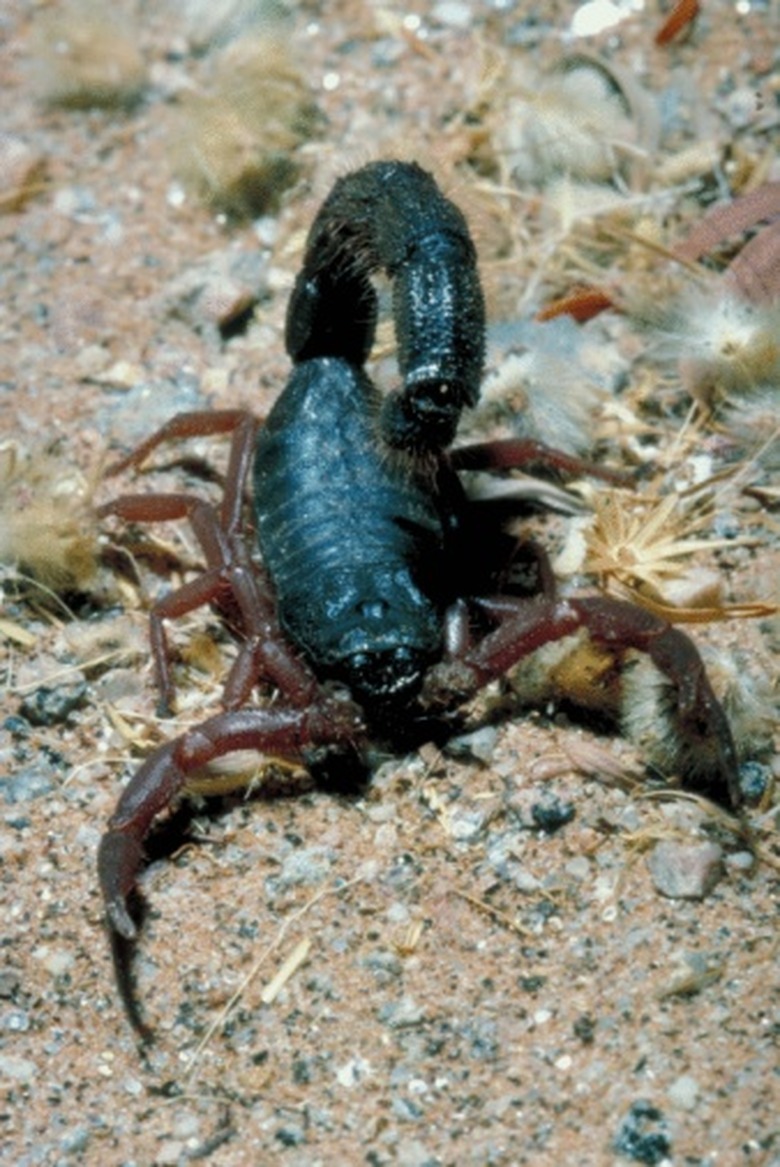Scorpion Species Found In Tennessee
When you think of scorpions, you probably picture the arid deserts of the southwestern United States. In fact, of the approximately 90 different species of scorpions native to North America, a whopping 86 species live west of the Mississippi River. Only four scorpion species live in the eastern portions of the United States and you can find just two species of scorpions in Tennessee.
Scorpions in Tennessee
Scorpions in Tennessee
Are there scorpions in Tennessee? In short, yes! However, you certainly won't find a variety. Tennessee is home to only two species of scorpion: the southern devil scorpion and the striped bark scorpion. Both scorpion species are nocturnal, which means that most of their activity occurs at night.
Southern Devil Scorpion
Southern Devil Scorpion
The southern devil scorpion (Vaejovis carolinianus), also known as the southern unstriped scorpion, is primarily brown in color. As their other common name suggests, they do not have any stripes or patterns on their body. Most adults measure between one and three inches in length.
The southern devil scorpion feeds on spiders, insects and other arthropods. They use their pincers to grab prey and hold it while they inject it with venom from the stinger on their tail. After their prey has been incapacitated, they pull it apart with their pincers and eat it.
Striped Bark Scorpion
Striped Bark Scorpion
As you might guess, the striped bark scorpion (Centruroides vittatus) has stripes along its body. It is lighter in color than the southern devil scorpion, with a yellowish base color and lines darker stripes that the other species lacks. Adult striped bark scorpions average about two inches in length, and rarely grow larger than three inches.
The hunting habits of the striped bark scorpion are similar to that of the southern devil scorpion. This species also grabs its prey with its pincers before stinging it to inject a neurotoxin. It feeds primarily on beetles, centipedes, spiders, crickets and various insects.
Are These Non-Venomous Scorpions?
Are These Non-Venomous Scorpions?
Both the southern devil scorpion and the striped bark scorpion have venom in their stingers. However, their venom is mild and does not pose a danger to the vast majority of people. Some stings can cause muscle spasms, but only in rare cases do humans require hospitalization for stings from either species of scorpion.
In some people, scorpion venom can result in an allergic reaction that requires medical attention. However, all effects from the sting come as a result of the anaphylactic reaction to an allergen in the venom, rather than to the venom itself.
With that said, while a sting won't kill you in the vast majority of cases, that doesn't mean it won't hurt! People generally liken the pain of scorpion stings to that of bee stings. The sting causes stabbing pain in the immediate area and eventual localized swelling.
How to Avoid Being Stung
How to Avoid Being Stung
Scorpions in Tennessee might not pose a significant danger if they sting you, but you certainly want to avoid close interactions with them in any case. Because they are most active at night, you should avoid roaming after dark without shoes. During the day they hide in dark crevices, so you should take care to overturn any shoes or boots before putting them on in the morning – particularly if you've left them outside or in a shed.
Though they don't go looking for a fight, if you touch or grab a scorpion it will most likely sting you. With this in mind, you should use caution when reaching into any areas these creatures might hide during the day. Some possible daytime shelters include the underside of rocks, woodpiles, beneath boards and dark areas of homes.
By keeping debris away from your house and securing any gaps where scorpions might access your home, you can deter these creatures and avoid unwanted interactions.
References
- Discover Life: Vaejovis Carolinianus
- Insect Identification: Southern Devil Scorpion
- Animal Diversity Web: Centruroides Vittatus
- Journal of Allergy and Clinical Immunology: Immediate, Late, and Delayed Skin Test Responses to Centruroides Vittatus Scorpion Venom
- HomeTeam Pest Defense: Six Facts About Scorpions and Tips to Prevent Them
- Desert USA: Scorpions
Cite This Article
MLA
Zinni, Yasmin. "Scorpion Species Found In Tennessee" sciencing.com, https://www.sciencing.com/scorpion-species-found-in-tennessee-12504069/. 30 September 2021.
APA
Zinni, Yasmin. (2021, September 30). Scorpion Species Found In Tennessee. sciencing.com. Retrieved from https://www.sciencing.com/scorpion-species-found-in-tennessee-12504069/
Chicago
Zinni, Yasmin. Scorpion Species Found In Tennessee last modified March 24, 2022. https://www.sciencing.com/scorpion-species-found-in-tennessee-12504069/
